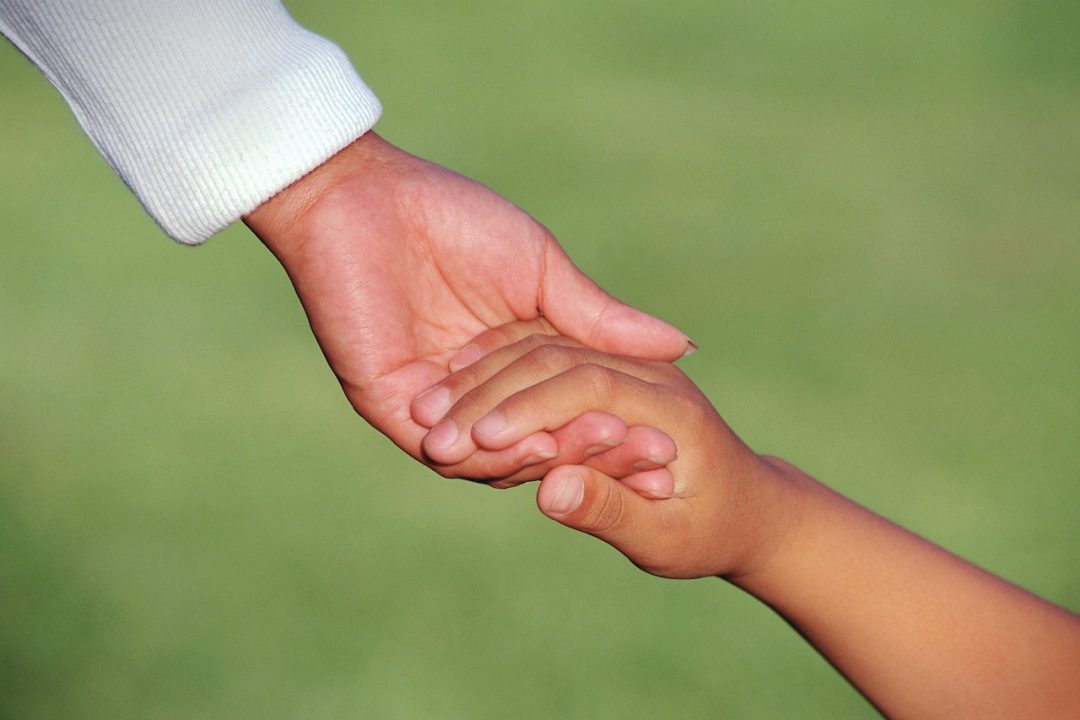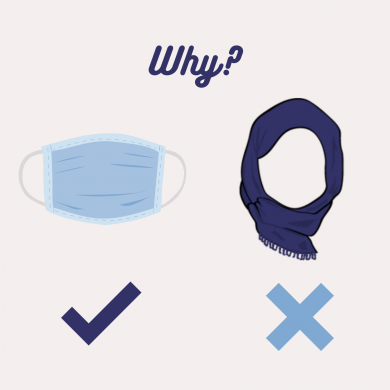The auspicious occasion of the birth anniversary of Imam Ali is an opportunity to learn from him as much as we can and to be good followers of this great personality. Generally, people focus on two issues in relation to Imam Ali; the conflicts of khilafa and the Imam’s exceptional characteristics. Prophet Muhammed called Imam Ali ‘the gate of the city of knowledge’ yet as Muslims, unfortunately we don’t know much of his knowledge, his justice, and his truthful attitude. Some of the best works on Imam Ali have in fact been written by Christians such as George Jordaq and others.
The method of learning about someone is very imperative. Choosing ‘what’ to study is not fruitful enough, unless you figure out ‘how’ to study a specific topic. The approach is crucial to a meaningful understanding of this personality, and it always determines how much benefit you get from this study.
I will share with you some of Imam Ali’s commandments (or wasiyya) to his sons and family so we can learn about his ethics. These commandments are indirect instructions to us on how to live our life. Imam Ali follows the method of the Qur’an. The Quran is full of commandments from Prophets and companions to their family and nations out of responsibility towards them. They teach their dear ones about their experience in life so people would be conscious and be able to differentiate right from wrong.
Imam Ali did not only teach his children, but everyone inside his home, even servants. One of his servants was called Qambar. He was a strong believer who supported the Imam and defended Islam in the battle of siffin. Qambar loved Imam Ali so much and he used to accompany him everywhere and comply with his orders. During the ruling of Imam Ali he was appointed as a treasurer which indicates his high level of trustworthiness. Can you imagine any other leader who would appoint their servant as treasurer? Later, he was martyred by the order of al-Hajjaj al-Thaqafi, while reciting verses of the Qur’an.
Even after his death, Qambar remained a representative of the great teachings of Imam Ali. One of the faithful companions of Imam Ali al-Hadi was called ibn al-Sikkit (d. 244H). He was a famous scholar and taught al-Mu’taz and al-Mu’ayyad, the sons of al-Mutawakkil al-Abbasi. One day al-Mutawakkil asked ibn al-Sikkit: “Who do you think is better, my sons or Hassan and Hussein?”. Ibn al-Sikkit was brave, so he didn’t hesitate to say the truth. He said: “I believe even Qambar the servant is better than your sons”. Al-Mutawakkil ordered to cut ibn al-Sikkit’s tongue immediately, and he died shortly afterwards.
The Imam taught people both verbally and practically. One day Imam Ali went to the market to buy some clothes. The Imam bought two gowns. He took the cheaper one for himself and he gave Qambar the expensive one. Qambar was shocked and he told the Imam: “You deserve it more than me, because you mount up the minbar and deliver speeches”. The Imam said: “Dear Qambar, you are still young and the youth love to wear nice things. If I wear something better than you I would feel embarrassed in front of Allah”.
Hadith books narrate many commandments by Imam Ali to his family and to the public. I quoted a number of them from the book ‘Tuhaf al-Uqul’ by abu Mohammed bin Shu’ba al-Harrani:
“I advise you to be pious and to be organised”
أوصيكم بتقوى الله ونظم أمركم
The Imam instructs his family to maintain two important human’s ethics; piety and organisation. While piety implies continuous remembrance of Allah and protection from physical, psychological and spiritual harms, organisation embodies Islamic teachings in a practical way. Observing these two merits results in ultimate happiness in this life and the hereafter.
“Oh my child, when I noticed that you were of goodly age and noticed that I was increasing in weakness, I hastened with my will for you”
أي بني إني لما رأيتك قد بلغت سنا ورأيتني أزداد وهنا بادرت بوصيتي إياك
In this part the Imam speaks to his son gently and friendly, saying yabunayya, which indicates a caring and loving father. This is an important lesson to learn from this statement; to talk to your children gently and thoughtfully when you want to advise them. Those people always speak with their children in a kind and compassionate way. They maintain an intimate relationship with them, based on love, kindness and trust, in addition to a continuous sharing of knowledge. This ideal relationship should be the main objective in any family; to have loving and devoted parents, with dutiful and respectful children. The strong connection between the family members makes it easy to share knowledge, and increases the understanding of each other’s ideas by having similar mindsets.
“I advise you to fear Allah, O my child, to abide by His commands, and to fill your heart with remembrance of Him”
فإني اوصيك بتقوى الله أي بني ولزوم أمره وعمارة قلبك بذكره
The Imam emphasises the role of piety, which means to remember Allah in every action you perform in your life, and to follow His orders and rules, which protects you from bad consequences in dunya and akhira. This advice suggests that our hearts should be filled with the love of Allah and His remembrance. We need to question our hearts every time we watch a YouTube video, go to a cinema, or play a video game, if we can consider these actions as remembrance of Allah or not. If not, then we should avoid these actions.
“I should begin by teaching you [his children] the Book of Allah and its interpretation, the laws of Islam and its commands, its lawful matters and unlawful matters and that I should not go beyond these.”
وأن أبدأك بتعليم كتاب الله وتأويله وشرائع الاسلام وأحكامه وحلاله وحرامه، لا اجاوز ذلك بك إلى غيره
The Imam reminds us to refer to the Qur’an and to the Islamic teachings as the basis of what to teach our children. It is important to note that in order to teach, we should teach ourselves first. We cannot help others unless we have enough knowledge and experience. For example, have you noticed how in the safety videos on airplanes, they always urge people to put the oxygen masks on themselves first and then help others? You can’t help others if you don’t help yourself first! In recent times, some people with little knowledge claim to be scholars and take it upon themselves to spread Islam. This often fails since they don’t have a strong enough foundation to teach others.
“Certainly, the heart of a young man is like uncultivated land. It accepts whatever is thrown on it. So, I hastened to mould you properly before your heart hardens up and your mind becomes occupied, so that you might be ready to accept through your intelligence the results of the experience of others and be saved from going through these experiences yourself.”
وإنما قلب الحدث كالارض الخالية ما القي فيها من شئ قبلته فبادرتك بالادب قبل أن يقسو قلبك ويشتغل لبك لتستقبل بجد
This part teaches us that we should start teaching our children from a young age. The Imam describes the heart of a youth as an empty fertile land that accepts all seeds, regardless if they were good or bad. It is striking that corrupted and poisonous ideas can be absorbed in our minds exactly like a plant that absorbs any kind of water. Yet clean water (and good ideas) would make the plant vibrant, while polluted water makes it dull and unhealthy. The Imam also draws our attention to the importance of benefitting from the experience of others so we don’t repeat same mistakes.
“Know, O my child, that no one received messages from Allah, the Glorified, as the Prophet did. Therefore, regard him as your forerunner and leader towards deliverance.”
واعلم يا بني أن أحدا لم ينبئ عن الله تبارك وتعالى كما أنبأ عنه نبينا فارض به رائدا وإلى النجاة قائدا
The Imam advises his son to follow the teachings of the Prophet because he’s the messenger of Allah, and therefore his teachings are the best for humanity. This stresses the role of the leader in people’s life and how it is important to choose the right role model to achieve eventual success.
“The example of those who have understood the world is like those travellers who, being disgusted with drought-stricken places set off for greenery and a fruitful place. Then they endured difficulties on the way, separation from friends, hardships of the journey and unwholesome food in order to reach their fields of plenty and place of stay. Consequently, they do not feel any pain in all this and do not regard any expenditure to be waste. Nothing is more loveable to them than what carries them closer to their place of stay. (Against this), the example of those who are deceived by this world is like the people who were in a green place but they became disgusted with it and went to a drought-stricken place. Therefore, for them nothing is more detestable or abominable than to leave the place where they were to go to a place, which they will reach unexpectedly and for which they are heading.”
إنما مثل من أبصر الدنيا كمثل قوم سفر نبا بهم منزل جدب فأموا منزلا خصيبا وجنابا مريعا فاحتملوا وعثاء الطريق وفراق
The Imam advices us to think outside the square and consider this life as a bridge to the hereafter. In this way, we would bare all the challenges of implementing Islamic teachings and hardships in this life in order to get infinite happiness in the hereafter inshaAllah.
“The actual well-educated is that who realises that he ignores more than what he knows; hence, he reckons himself with the ignorant and receives more knowledge by seeking it painstakingly. The actual ignorant is that who reckons himself with the scholars -although he ignores many things- and depends on his opinion.”
فإن العالم من عرف أن ما يعلم فيما لا يعلم قليل، فعد نفسه بذلك جاهلا فازداد بما عرف من ذلك في طلب العلم اجتهادا،
This part outlines a common problem which is the confusion between the understanding of ignorance and knowledge. The Imam advises his son to be humble and considers himself ignorant even if he has a great amount of knowledge, because if he considers himself knowledgeable he would limit himself from further learning. The Imam also states that the one who thinks he knows everything is the real ignorant, since only Allah knows everything. If we don’t know much about something or if we were unsure about right from wrong, we shouldn’t express our opinions. People should be humble and they should be keen to learn throughout their lives. Knowledge is like a sea, and diving in this sea to get pearls and diamonds is never easy. It takes long time and much effort to accomplish it.
“Oh my child, try to understand my commandment and make yourself the measure between you and others. Thus, you should desire for others what you desire for yourself and hate for others what you hate for yourself. Do not oppress as you do not like to be oppressed. Do good things to others as you would like good to be done to you. Regard bad for yourself whatever you regard bad for others. Accept that (treatment) from others, which you would like others to accept from you.”
أي بني تفهم وصيتي واجعل نفسك ميزانا فيما بينك وبين غيرك، فاحبب لغيرك ما تحب لنفسك، واكره له ما تكره لنفسك،
The Imam teaches his son to uphold justice, which is one of the basic principle of Islamic belief. He highlights the important Islamic equation that considers faith or iman equal to selflessness, when you see yourself through others and discover your human characteristics in other people. The Prophet states: “You are not a true believer unless you wish for others the same thing that you wish for yourself” (لا يؤمن احدكم حتى يحب لأخيه ما يحب لنفسه)
The equation is simple and clear; if you want to be a good believer and open up to your Lord, you cannot limit your recognition in yourself, because all humans are the children of Allah, and you discover yourself through the love of Allah. When you realise this, you would be obliged to wish other people the same thing that you wish for yourself, because both of you are important part of existence and you will unite in front of Allah who created all of you and granted you with His blessings.
Unfortunately, we see many examples of unjust treatments in our society, which needs a strong awareness. For instance, you promise someone and you don’t keep your promise, but you become upset if people failed to keep their promises. Or you do not want people to know your secrets, but you spread their secrets. Another example is that you waste water and food, and you do not limit your use of plastics, which might harm people and other creatures, yet you don’t want anyone to harm you. It is an easy comparison; be good to people because you want them to be good to you, and do not harm them because you hate to be harmed.
“Your family should not become the most miserable people because of you”
ولا يكن أهلك أشقى الخلق بك
The Imam here draws our attention to an important behaviour. Some people are very kind and friendly with people outside their homes yet they treat their families badly and aggressively. The Imam warns people from this imbalanced, unjust behaviour, because it is against Islamic teachings.
“You should know, O my son that he who notices his own flaws will give up chasing others’ flaws”.
واعلم أي بني أنه من أبصر عيب نفسه شغل عن عيب غيره
The Imam advises his son to be occupied with his own weaknesses and try to improve himself, instead of recognising other people’s faults. Islam encourages love and respect between the members of the society, and chasing the flaws of others is against these noble principles.
“Self-esteem refers to weak-mindedness”
واعجاب المرء بنفسه يدل على ضعف عقله
It is always dangerous to see yourself better than others and to feel superior. The Imam describes such behaviour as a weak-mindedness, which refers to unstable psychological status of the person who feels superior to others, since he deceives himself and deceives others. Unfortunately, this ill-manner behaviour is widespread in the society. It should be considered as a sickness and it should be dealt with seriously.
“O son, many views have brought sorrow, and many words have deprived of grace”
أي بني كم نظرة جلبت حسرة وكم من كلمة سلبت نعمة
The Imam advises his son to be mindful of his gaze. If a person looks at something that is prohibited (haram) he will regret it in this life and the hereafter. The look might seem simple and innocent. Yet in many cases it leads to a bigger action which might involve haram means, which makes the look very hazardous. The Imam also advises his son to be careful with his words, since a good word clears the air, and it has the potential to develop a good society. On the other hand, a damaging word can contaminate the air and harm people, which leads to destructive consequences that diminish Allah’s blessings.
“O son, you should know that the affection to those whose wording is lenient is obligatory. May Allah guide you to your prosperity and count you with the people of his obedience, by the help of His potency. He is surely All-benevolent and All-generous”
واعلم أي بني أنه من لانت كلمته وجبت محبته. وفقك الله لرشدك وجعلك من أهل طاعته بقدرته انه جواد كريم
The Imam implies that the person who shows sincere love and kindness to you would care about you and wouldn’t mislead you. Therefore, you should listen to him and obey his advice. Finally, after telling his son all these precious commandments, the Imam prays to Allah to guide him to stay on the right path and to be among the best worshippers of Allah. This shows the importance of prayers (du’aa) which connect us to Allah, who is capable of everything. I hope we all continue to learn from this great personality, and implement Imam Ali’s advice in our lives.






